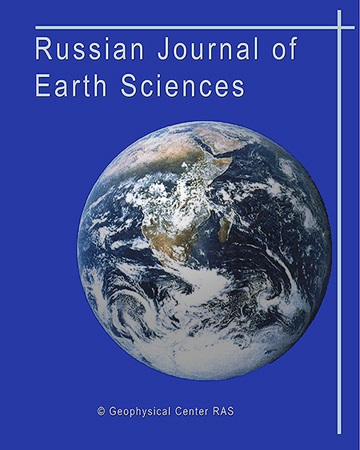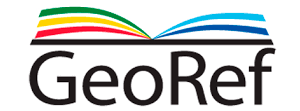This article proposes the use of Big Data principles to support the future extraction of hydrocarbon resources. It starts out by assessing the possible energy-system transformations in order to shed some light on the future need for hydrocarbon resource extraction and corresponding drilling needs. The core contribution of this work is the development of a new database and the corresponding GIS (geographic information system) visualization project as basis for an analytical study of worldwide hydrocarbon occurrences and development of extraction methods. The historical period for the analytical study is from 1900 to 2000. A number of tasks had to be implemented to develop the database and include information about data collection, processing, and development of geospatial data on hydrocarbon deposits. Collecting relevant information made it possible to compile a list of hydrocarbon fields, which have served as the basis for the attribute database tables and its further filling. To develop an attribute table, the authors took into account that all accumulated data features on hydrocarbon deposits and divided them into two types: static and dynamic. Static data included the deposit parameters that do not change over time. On the other hand, dynamic data are constantly changing. Creation of a web service with advanced functionality based on the Esri Geoportal Server software platform included search by parameter presets, viewing and filtering of selected data layers using online mapping application, sorting of metadata, corresponding bibliographic information for each field and keywords accordingly. The collected and processed information by ROSA database and GIS visualization project includes more than 100 hydrocarbon fields across different countries.
Database, extraction, exploration, system analysis, oil and gas deposits, GIS project, CO$_2$ storage, drilling needs
1. Agayan, S., Bogoutdinov, Sh., Dobrovolsky, M. Discrete perfect sets and their application in cluster analysis, // Cybernetics and Systems Analysis, 2014. - v. 50 - no. 2 - p. 17.
2. Benson, S. M., et al. Chapter 13 - Carbon Capture and Storage // Global Energy Assessment - Toward a Sustainable Future - Cambridge, UK and New York, and Laxenburg, Austria: Cambridge University Press, NY, USA and the International Institute for Applied Systems Analysis., 2012. - p. 993.
3. Cumo, C. Ghawar field (Saudi Arabia) // Oil: A Cultural and Geographic Encyclopedia of Black Gold, 1 - Santa Barbara, California, USA: ABC-Clio., 2014. - p. 105.
4. Facey, W. The Story of the Eastern Province of Saudi Arabia - London: Stacey International., 1994. - 160 pp.
5. Fattah, K., El-Katatney, S., Dahab, A. Potential implementation of underbalanced drilling technique in Egyptian oil fields, // Journal of King Saud University - Engineering Sciences, 2011. - v. 23 - no. 1 - p. 49.
6. GEA, Global Energy Assessment - Toward a Sustainable Future - Cambridge, UK and New York, and Laxenburg, Austria: Cambridge University Press, NY, USA and the International Institute for Applied Systems Analysis., 2012.
7. Golf-Rakht, T. Fundamentals of Oilfield Geology and the Development of Fractured Reservoirs - Moscow: Nedra., 1986. - 608 pp.
8. Gvishiani, A., Agayan, S., Bogoutdinov, Sh. Mathematical Methods of Geoinformatics. I. A New Approach to Clustering, Cybernetics and Systems - New York, USA: Springer., 2002.
9. Gvishiani, A., et al. Discrete mathematical analysis and geological and geophysical applications. Bulletin of Kamchatka Regional Association ``Educational-Scientific Center'', // Earth Sciences, 2010. - v. 16 - no. 2 - p. 109.
10. Gvishiani, A., et al. Objective classification of epicenters and recognition of places of possible occurrence of strong earthquakes in California, // Geoinformatics, 2013. - no. 2 - p. 44. EDN: https://elibrary.ru/QCOVVP
11. IEAGHG, CCS Industry Build-Out Rates - Comparison with Industry Analogues. IEAGHG Technical Review 2017-TR6, June 2017 - Cheltenham, UK: IEA Greenhouse Gas., 2017.
12. IIASA, GEA Scenario database, Version 2.0.2 - Vienna, Austria: IIASA., 2017.
13. Krey, V., et al. Gas Hydrates: Entrance to a Methane Age or Climate Threat?, // Environmental Research Letters, 2009. - v. 4 - no. 3 - p. 44. DOI: https://doi.org/10.1088/1748-9326/4/3/034007; EDN: https://elibrary.ru/MWWOTP
14. Le Quéré, C., et al. Global Carbon Budget 2015, // Earth System Science Data, 2015. - v. 7 - no. 2 - p. 349. DOI: https://doi.org/10.5194/essd-7-349-2015; EDN: https://elibrary.ru/WRUMPN
15. Metz, B., Davidson, O., De Coninck, H., Loos, M., Meyer, L. ``IPCC Special Report on Carbon Dioxide Capture and Storage'' - Geneva, Switzerland: Intergov. Panel on Climate Change., 2005.
16. Nahai, L., Kimbell, C. The Petroleum Industry of Iran - Washington, US: Dept. of the Interior, Bureau of Mines., 1963. - 112 pp.
17. Nehring, R. Giant Oil Fields and World Oil Resources. - Santa-Monica, CA: Rand Corporation., 1978.
18. Nikolov, B., et al. Integration of data mining methods for Earth science data analysis in GIS environment, // Russian Journal of Earth Sciences, 2015. - v. 15 - no. 4 - p. 349.
19. Odintsova, A., et al. Dynamics of oil and gas industry development in the 20th century using the world's largest deposits as an example: GIS project and web service, // Geoinformatics, 2017. - no. 4 - p. 2. EDN: https://elibrary.ru/ZWSRHZ
20. Pachauri, R. K., et al. Climate Change 2014: Contribution of Working Groups I, II and III to the Fifth Assessment Report of the Intergovernmental Panel on Climate Change - Geneva, Switzerland: IPCC., 2014.
21. Plate, A., Veselovsky, A. Geological and Geophysical Database in the Context of Creating a Geo-Information System, Subsoil use Problems, 2 - Ekaterinburg: IGD UB RAS., 2016. - 39-45 pp.
22. Riahi, K., et al. Chapter 17 - Energy Pathways for Sustainable Development // Global Energy Assessment - Toward a Sustainable Future - Cambridge, UK and New York, and Laxenburg, Austria: Cambridge University Press, NY, USA and the International Institute for Applied Systems Analysis., 2012. - p. 1203.
23. Roberts, F. S. What is Big Data and how has it changed? // Book of Abstracts of the International Conference ``Data Intensive System Analysis for Geohazard Studies'', Sochi region, Mountain cluster, Russia, 18-21 July 2016, Edited by E. Kedrov - Moscow: GC RAS., 2016. - p. 1203.
24. Rockström, J., et al. A Roadmap for Rapid Decarbonization, // Science, 2017. - v. 355 - no. 6331 - p. 1269.
25. Rogner, H.-H., et al. Chapter 7 - Energy Resources and Potentials // Global Energy Assessment - Toward a Sustainable Future - Cambridge, UK and New York, and Laxenburg, Austria: Cambridge University Press, NY, USA and the International Institute for Applied Systems Analysis., 2012. - p. 423.
26. Rundkvist, D., et al. Principles of compilation and preliminary analysis of results: Large and super large deposits: patterns of location and conditions of education // Database and metallogenetic map of large and super-large deposits of the world - Moscow: IGEM RAS., 2004. - p. 391.
27. Rybkina, A., et al. Development of geospatial database on hydrocarbon extraction methods in the 20th century for large and super large oil and gas deposits in Russia and other countries, // Russian Journal of Earth Sciences, 2016. - v. 16 - no. 6 - p. 391.
28. Science International, Open Data in a Big Data World. Paris: International Council for Science (ICSU), International Social Science Council (ISSC), The World Academy of Sciences (TWAS), InterAcademy Partnership (IAP) - Paris: ICSU., 2015. - 17 pp.
29. Sergeyeva, N., et al. Development of the user interface for geomagnetic database, // Geoinformatics Research Papers, 2016. - v. 4 - p. 391.
30. Shchukin, S., Petrov, V., Poluektov, V., Ustinov, S. Geological database for modeling and forecasting rock deformations of the Antaeus deposit of Streletsky ore cluster, // Gornyi Zhurnal, 2015. - no. 2 - p. 21. DOI: https://doi.org/10.17580/gzh.2015.02.04; EDN: https://elibrary.ru/TMJPLN
31. Soloviev, A., et al. GIS-oriented solutions for advanced clustering analysis of geoscience data using ArcGIS platform, // Russian Journal of Earth Sciences, 2016. - v. 16 - no. 6 - p. 21.
32. Tkachev, A., Bulov, S., Rundqvist, D., Pokhno, S., Vishnevskaya, N., Nikonov, R. Web-GIS ``Largest deposits of the world'', // Geoinformatics, 2015. - no. 1 - p. 47. EDN: https://elibrary.ru/TNUWGT
33. WBGU, Development and Justice through Transformation: The Four BIG ``I''s - Berlin, Germany: Wissenschaftlicher Beirat d. Bundesregierung Globale Umweltveränderungen., 2016.














